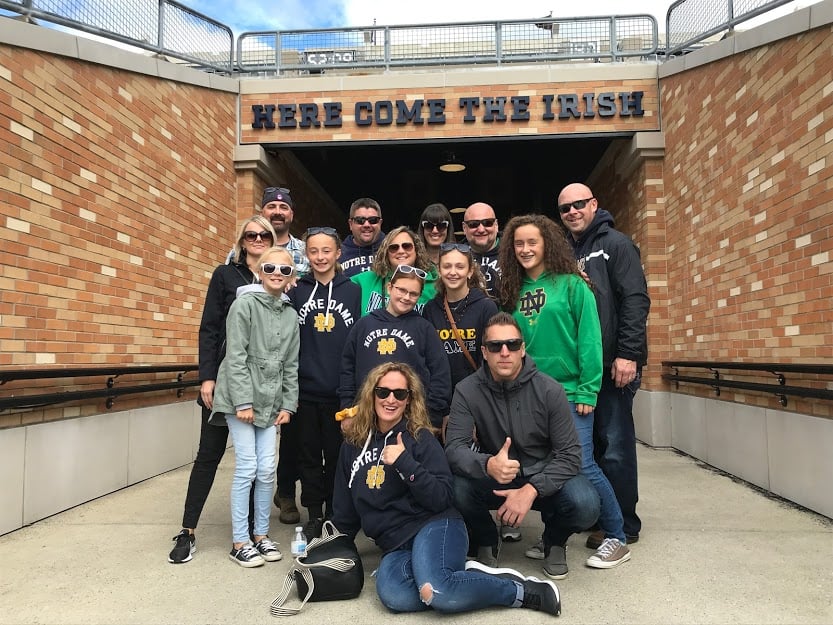As you've no doubt heard, the Supreme Court sports betting decision last week has struck down a federal ban on sports betting as unconstitutional, paving the way for most access to gambling opportunities throughout amateur and professional sports.
Now, first a disclaimer: Sports betting is an extremely dangerous endeavor, and gambling on athletic performances is NOT a dependable money-making scheme.
Even with new access to betting pools based on this decision, our team advises you practice control and discipline should you choose to gamble on upcoming sporting events - and, of course, please gamble ethically and legally.
All that said, here's what you need know:
The Supreme Court didn't "legalize" sports betting
Those of you who aced AP Government know that this decision doesn't automatically make sports betting legal across the country, because the judicial branch can't enact laws governing the complex system sports betting would entail.
Instead, this decision struck down the 1992 Professional and Amateur Sports Protection Act, which made sports betting illegal in 46 states across America (Nevada retained sports betting based on the law's one-year window, as did betting lotteries in Delaware, Oregon, and Montana).
So what does this mean?
States will begin to legalize betting through their state legislatures
The decision to legalize sports betting now rests with the states, whose representatives will begin drafting and voting on legislation to specify the rules and regulations that will govern betting in each state.
As of this article (May 23, 2018), the following states have already passed legislation legalizing sports betting:
- Pennsylvania
- West Virginia
- New Jersey
- Delaware
- Mississippi
Meanwhile, the following states have introduced (but have yet to pass) legislation to legalize betting:
- Illinois
- Michigan
- Indiana
- Kentucky
- New York
- Connecticut
- Rhode Island
- Missouri
- Maryland
- South Carolina
- California
- Kansas
- Oklahoma
- Louisiana
To stay up to date on the legislative process in each state, make sure to visit ESPN's "Sports Betting Bill Tracker."
This legislation will determine which sports you can bet on, along with the parameters of the betting rules
With this decision, states will be allowed to establish not just their sports betting rules - but also which sports you'll be allowed to bet on.
In all likelihood, these states will allow betting on any and all sporting events - including professional and amateur athletics, horse racing, combat sports (boxing, MMA, etc.), golf, and more.
However, as the Washington Post notes, officials for professional leagues are almost universally opposed to "prop bets" or wagers on situational plays that otherwise don't impact the final outcome of the game (i.e. "Which player in the Notre Dame vs. Michigan game will commit the first penalty?").
The NCAA is strongly opposed to allowing sports betting on college sports, and is hoping for federal oversight
Though states could vote to allow betting on collegiate sporting events, the NCAA is hoping for the federal government to step in to keep betting out of amateur athletics.
From the NCAA statement:
“Our highest priorities in any conversation about sports wagering are maintaining the integrity of competition and student-athlete well-being. Sports wagering can adversely impact student-athletes and undermine the games they play... While we recognize the critical role of state governments, strong federal standards are necessary to safeguard the integrity of college sports and the athletes who play these games at all levels.”
With betting lines for college football's opening weekend games getting released this week, it will be interesting to keep tabs on this ongoing battle as the summer wears on.
Where will I be able to place bets once my state makes it legal?
In short: this is another thing that will really be up to the states.
Placing in-person bets will require brick and mortar locations to apply for new permits and inspections - which could delay the official rollout of sports betting for a bit longer.
Additionally, according to the Washington Post, many bills that are being introduced have some options for mobile and online betting, as this will make legal betting more accessible and will limit illegal offshore gambling.
Meanwhile, fantasy sports platforms like FanDuel and DraftKings are already throwing their hats in the ring, making it clear they'll be making legal betting a key part of their respective business models. How, exactly, they do so on a national scale remains to be seen.
We may not have seen the last of the federal government
Even with this decision, it's possible that the federal government will still enact some kind of overseeing set of regulations to govern sports betting.
Besides the NCAA's concerns, federal oversight would make gambling across state lines possible, as history buffs will remember that the Commerce Clause of the US Constitution grants the federal government the right to govern interstate commerce.
Any action the federal government takes will likely involve more time in the courts down the line, so expect sports gambling to mainly be limited to "in-state" betting for a little while.
Anything else I should know?
If you want to know more about the decision, here's some great coverage that will give you an idea of what further developments may be coming:




.jpg)
.jpg)
